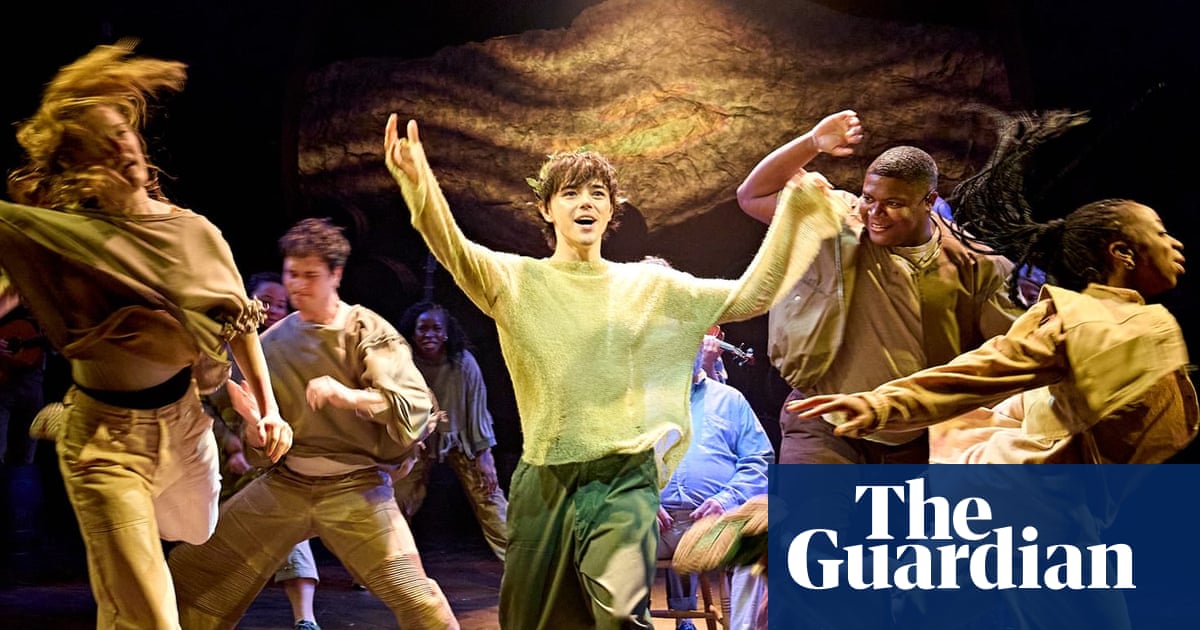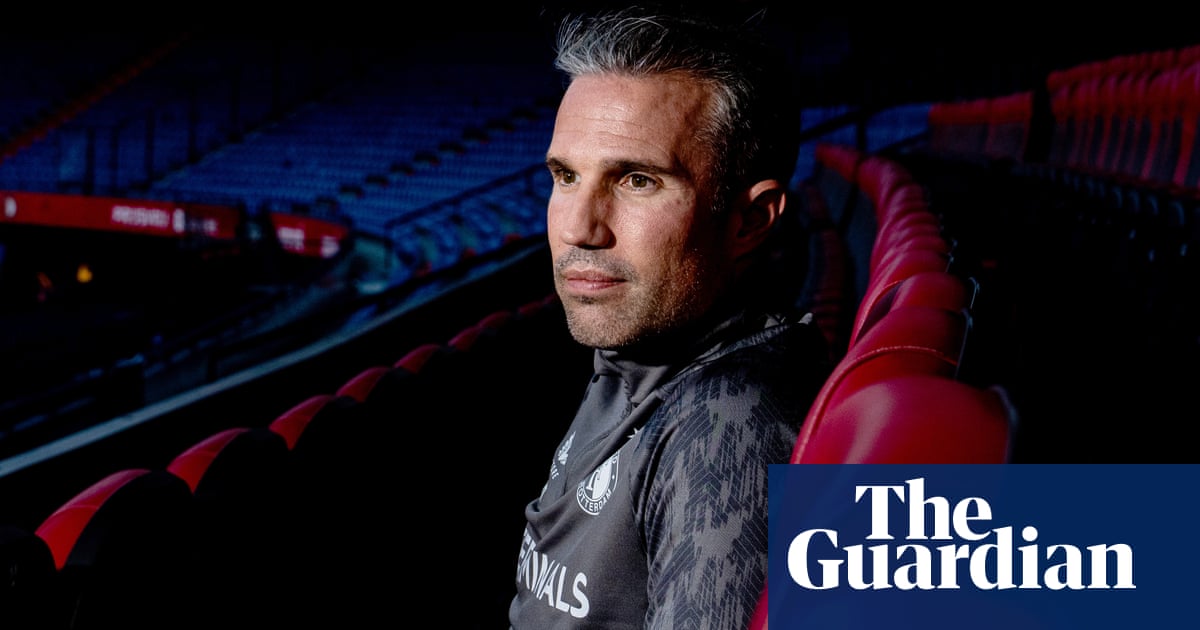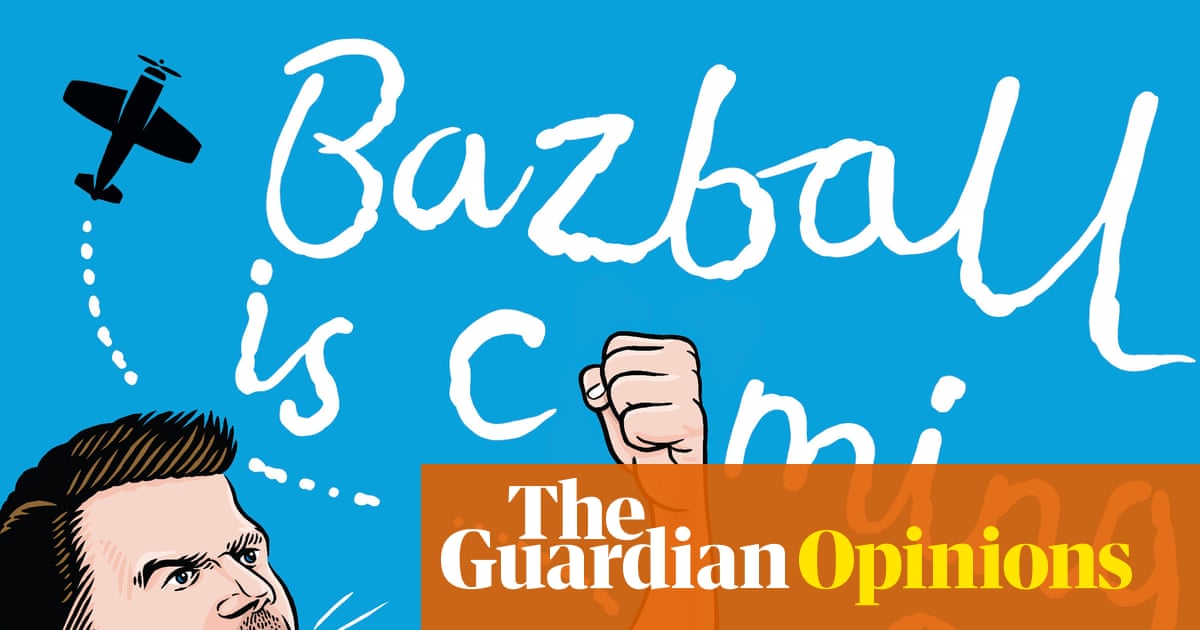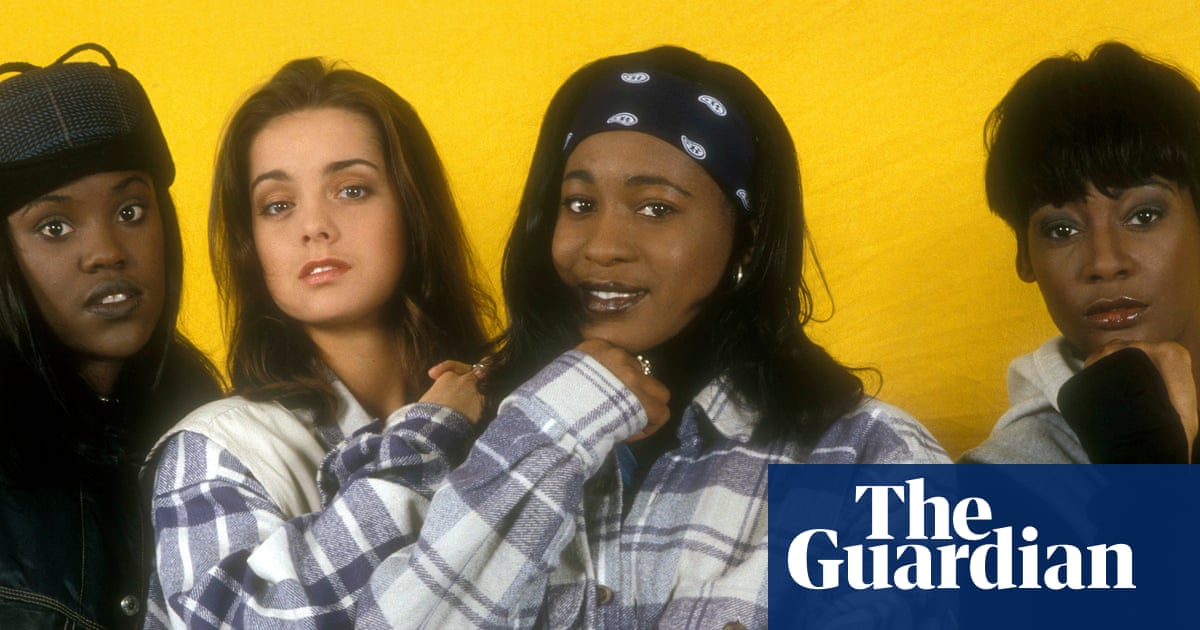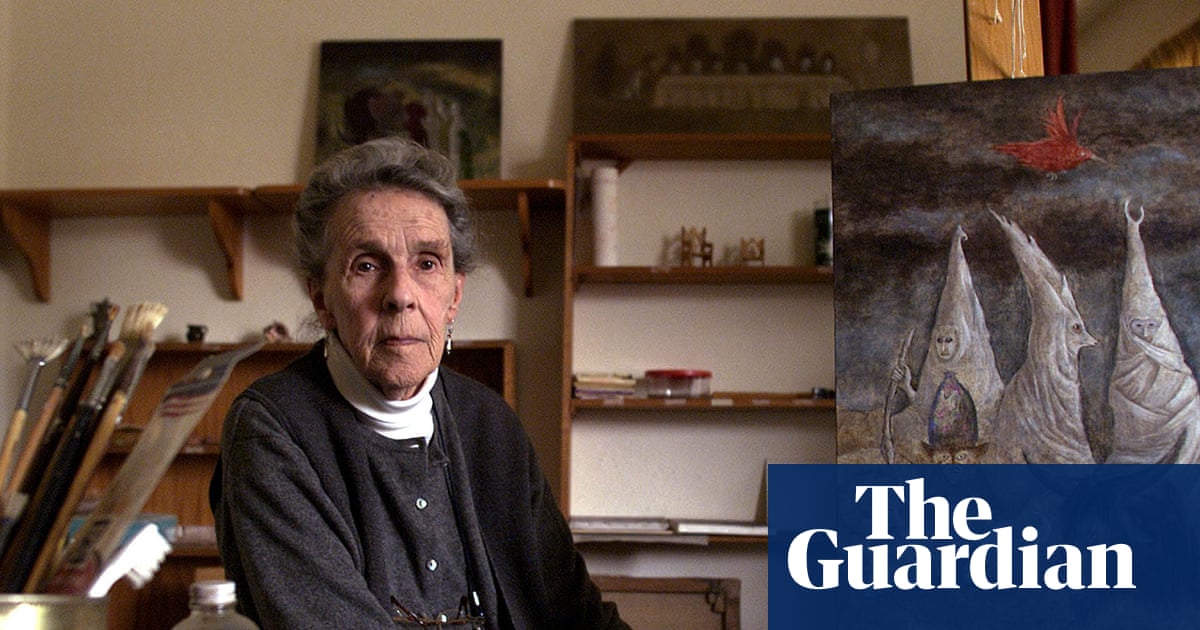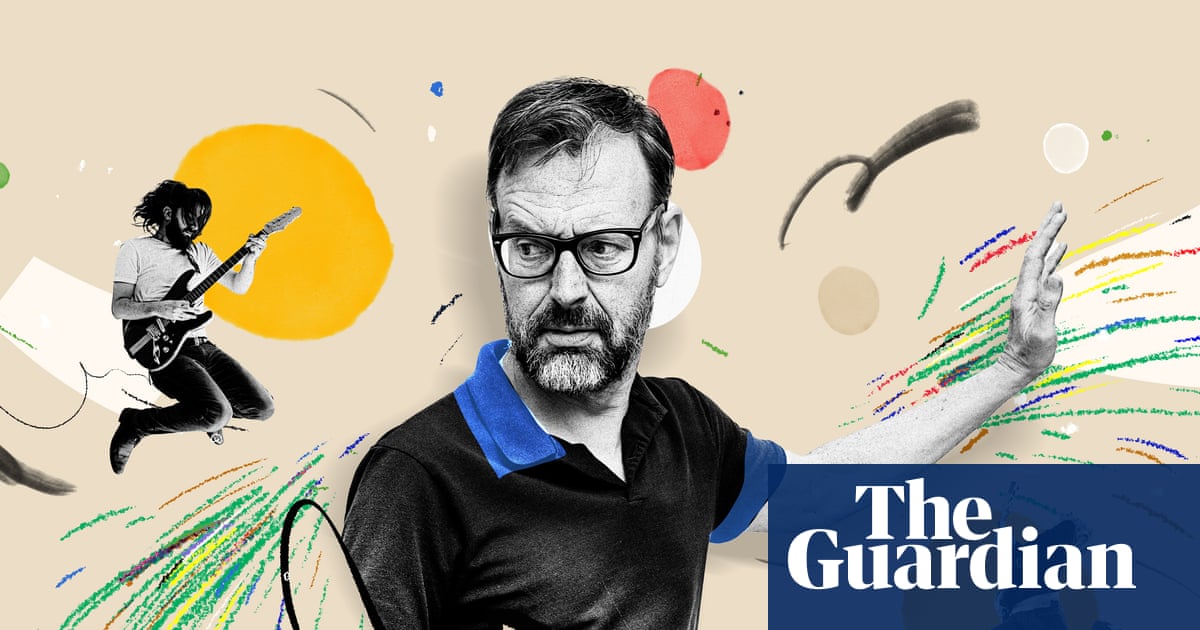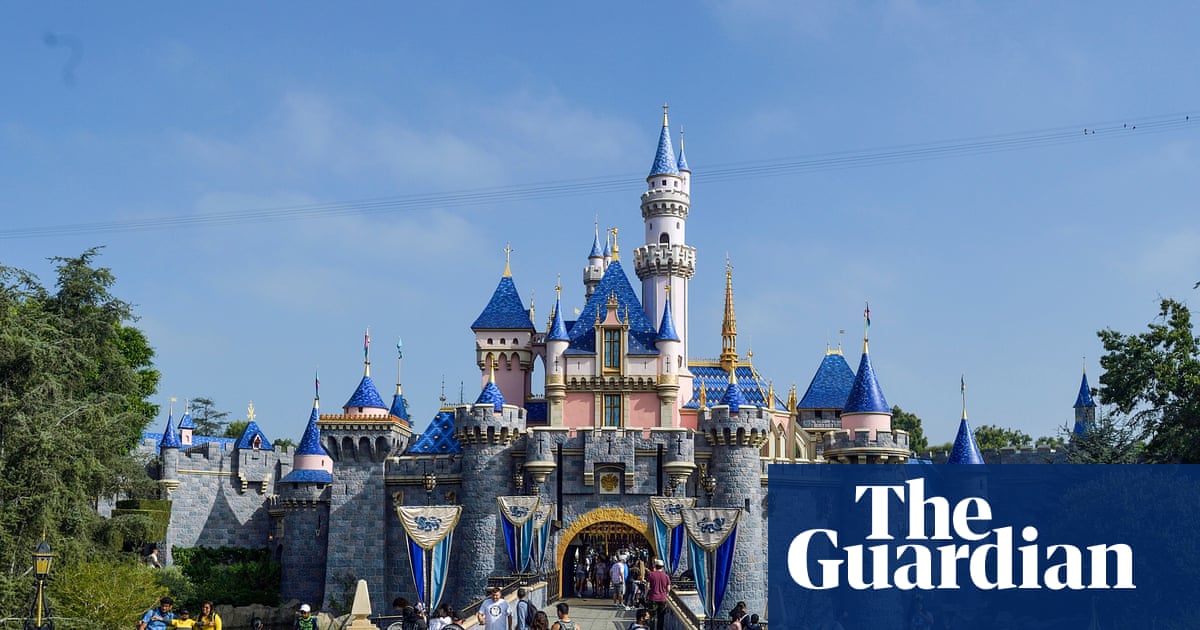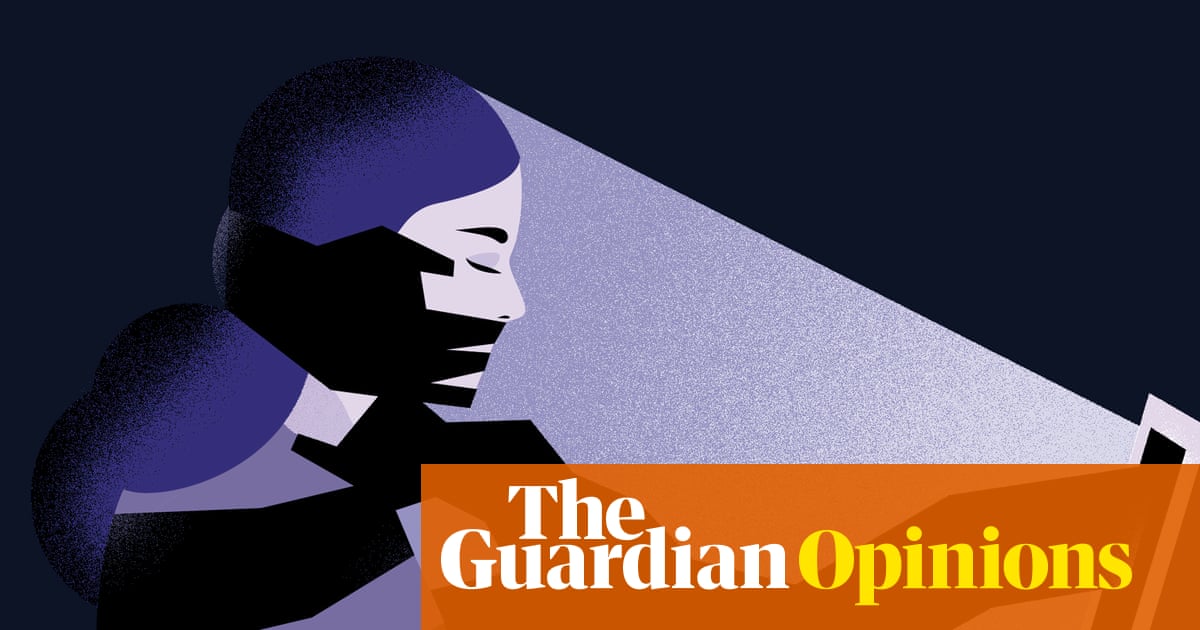“What does freedom feel like?” the singer Kesha asks in voiceover early in her sold-out show at Madison Square Garden on Wednesday night. The 38-year-old pop star has just opened her “Tits Out” show with TiK ToK, the sleazy, insouciant, inescapable party anthem that rocketed her to fame in 2009, cradling a model of her own head from that time – blond, dead-eyed, distinguishable as the artist formerly known as Ke$ha by one single glitter tear. She paraded the head while gamely barreling through that first indelible, now altered, lyric – “wake up in the morning like FUCK P Diddy” – and the IDGAF brag of brushing her teeth with a bottle of Jack (Daniels). Then she places it on an altar of empty glasses and candles and bows to a prayer of “freedom from my past”, how the “truth will set you free”.
If this all seems like a lot, somehow both cartoonishly blunt and muddled, hedonism strangely crossed with sanctity – well, that’s Kesha, a millennial-beloved artist always on the bleeding edge of culture, for better and for worse. Once the 22-year-old from Nashville who rolled in on her gold Trans-Am and glittered-bombed the early 2010s with a ridiculous string of feral, slangy hits, then a cautionary tale stalled by a nearly decade-long legal dispute with her former producer, the artist born Kesha Rose Sebert has finally stepped into her role as a generational symbol on her own terms, much to the delight of a loyal crowd at the Garden, who hollered at every mention of the word freedom – and there were many – like it was a revelation.
And it was – for years, Kesha represented not only the bombast, disillusionment and debauchery of youth fucked over by the 2008 financial crash, with attitude so fierce and undeniable it could make diabolical lyrics such as “don’t be a little bitch with your chit chat / just show me where your dick’s at” winsome, but also the dark side of the predacious music industry. In 2014, she sued to be released from her contract with producer Łukasz “Dr Luke” Gottwald, who convinced her to move to Los Angeles at 17, for alleged drugging, sexual assault and emotional manipulation; a protracted legal battle forced her to continue working for him, her music still released under his imprint if not with his input, until last year. . (pronounced Period), her album released this month, is her first output truly independent of Dr Luke.
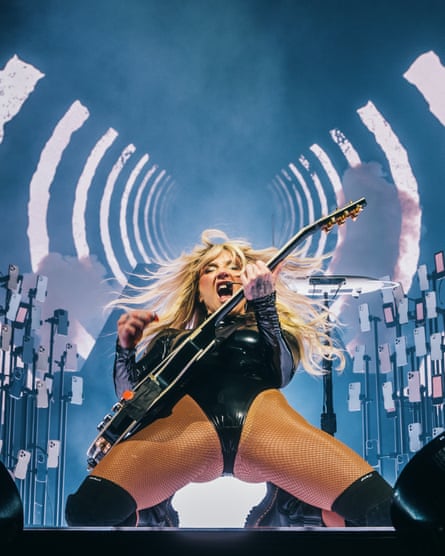
So you can’t begrudge Kesha some pointed and grandiose words on liberation, nor for remixing the production of some of her most recognizable hits – Blow, Die Young, Timber – into something a little smoother, more mature, more her. “I’ve had these songs taken from me and I want you to help me take them back tonight,” she proclaims during Act I of four murkily defined sections, before she laps the floor to a medley of tracks from Animal and Warrior in a shocking reminder of just how deep her cuts go. The choreography may be pop standard (sharp and suggestive but cold-blooded), the backing track sustaining the more vigorous dance numbers, the more conceptual moments (a straitjacket, dancers in kitty-cat mascot suits) a little too belabored, but it doesn’t matter. As a statement of legacy – her Auto-tuned recklessness a clear antecedent of today’s Brat-green pop landscape – and as an act of reclamation, the Tits Out tour is a triumph.
It’s also extremely fun, Kesha’s grip on the pulse of a hot banger as tight as her stage banter is loose and breezy. As with her recession pop peer Lady Gaga’s Mayhem Ball, the new dance tracks flow seamlessly with the old. Red Flag, a punchy ode to being magnetized for all the wrong reasons, bends smoothly into the cheerleader taunt of Dinosaur. (“D-I-N-O-S-A, U-R a dinosaur!” remains one of Kesha’s most deranged and stupidly catchy lyrics). Period’s Delusional morphs so easily into the girl-on-girl punches of Backstabber that I thought it was one song. New track Attention! finds Kesha in the pocket of the mode she pioneered – taunting, headstrong, teetering on obnoxious – straight into a sick repetition of “I’m a bitch!” with a 2010s bass so sticky it basically spells out LMFAO. No one could be still.
Except, briefly, Kesha herself, when she paused on multiple occasions to celebrate her freedom with kiss-offs (“hey, look how much money you made off of me!”) that would feel overdone if they weren’t so hard-earned. At one point, when she mentioned being in “year eight of litigation” ahead of the self-love track The One., I gasped – her onstage persona is so buoyant, it’s easy to forget the slog.
She drove the point into the stratosphere with a victorious encore; a note-perfect performance of Praying, her typically on-the-nose #MeToo ballad fantasizing a perpetrator’s recognition, her voice honeyed and soaring, led to a five-plus-minute standing ovation. She let her tears flow; I shed a tear too, for a moment more raw than anything I’ve seen at a pop show in recent memory. “This love is not only for me, it’s for anyone who survived something they never should’ve had to survive,” she said. And then it’s back to business, with early tracks Your Love Is My Drug and We R Who We R, and one final, perfect, very Kesha farewell: “Have a good night!” she said with that cheeky giggle. “And I hope … you all … get laid.”

 3 months ago
45
3 months ago
45



